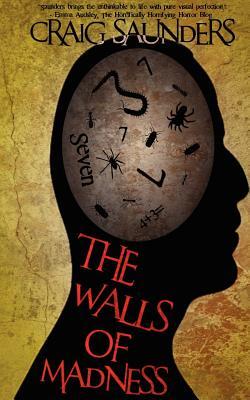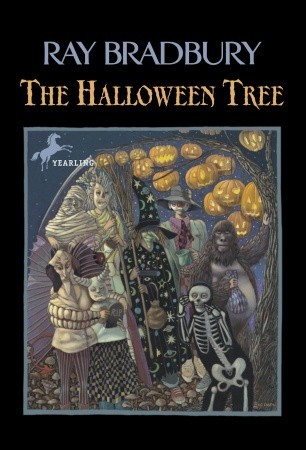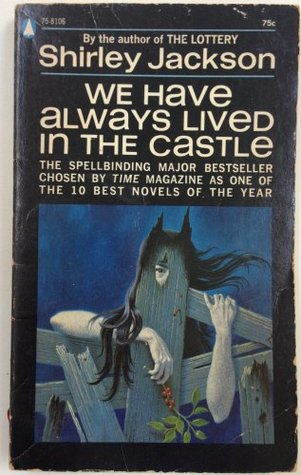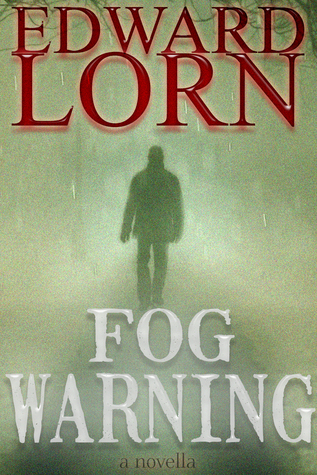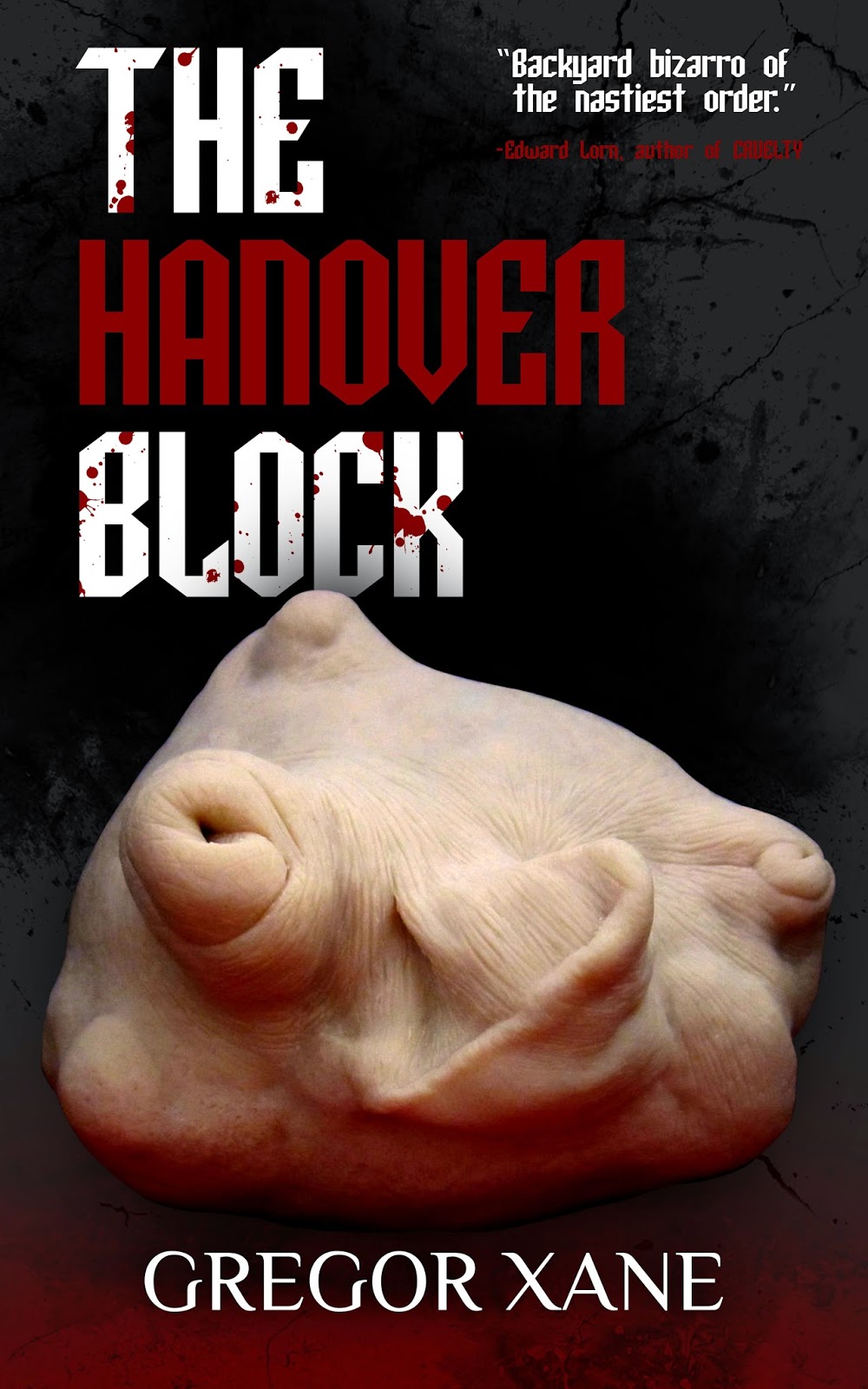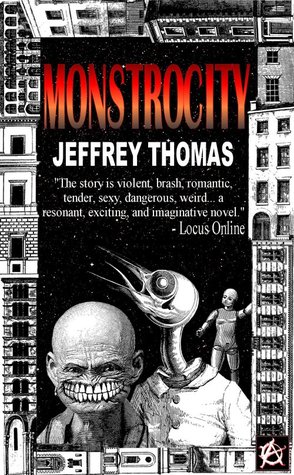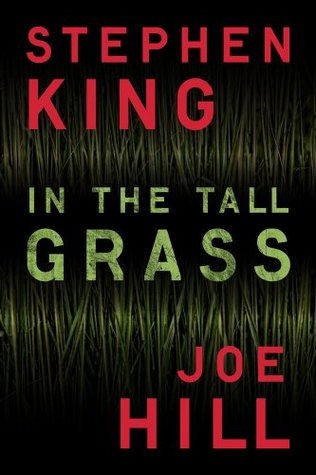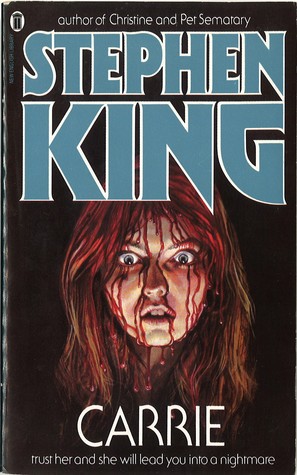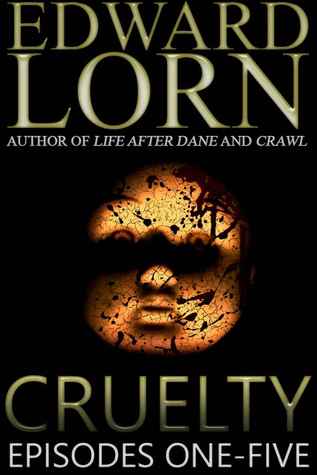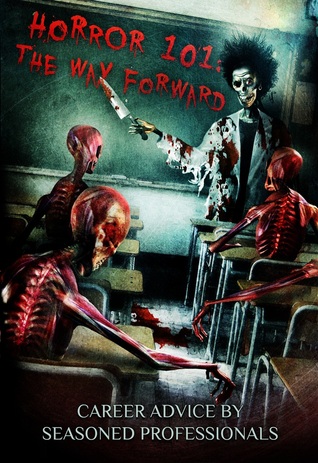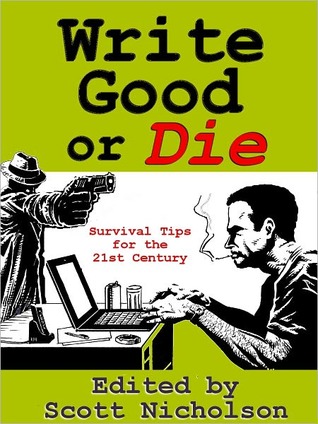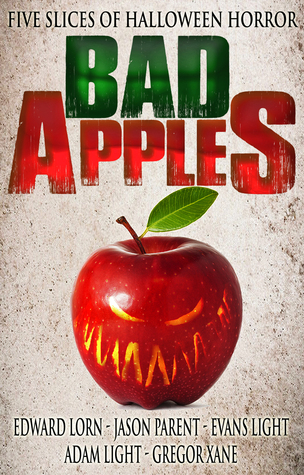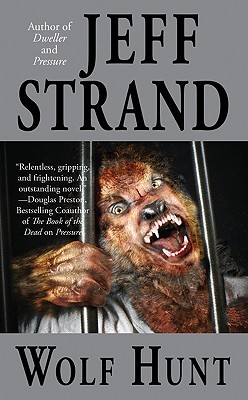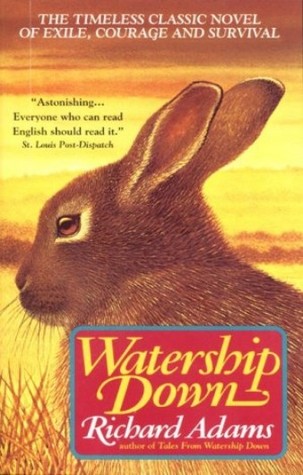Of all the books I've read in the past twelve months, these are my favorites.
Note: None of these books were published in 2014 (or in December, 2013).
10. The Drive-In (Series) by Joe R. Lansdale
I especially like Lansdale's wackier stuff like
Zeppelins West and
Flaming London.
The Drive-In is almost as wacky as those books. However, it's not an absurd pastiche. Instead, it's an homage to B-movie horror flicks (obviously). I found this to be a highly entertaining read, once I got past the dreadful John Hughes-style breakfast scene with the protagonist's wise-cracking and flirty parents, that is.
The Drive-In's way over-the-top in its depiction of humanity crumbling in a nightmare world of rapidly diminishing resources. Oh, and it's all played for laughs. So, if you're one to not find a thing funny about wide-spread degradation, cannibalism, and murder, then you might want to read one of Lansdale's Hap and Leonard books. They're good, too, and the violence is handled in a more serious manner.
I nearly forgot to mention The Popcorn King. This great villain alone is worth the price of admission.
You know, I'm pretty sure I liked this one a smidgen more than the first one. The scope expanded and the dark humor got even darker and funnier. I was somewhat reluctant to pick this one up right away because the end of the first book seemed to hint that this one might be a
The Lost World pastiche. I don't
dislike dinosaurs, but they really aren't a selling point for me. Now, there are dinosaurs in
The Drive-In 2, but in no way are they the focus. They're not even a huge threat and kind of keep their distance for the most part. It's almost as if Lansdale changed his mind about the second book featuring dinosaurs between the writing of book 1 and book 2, which is fine by me. I'd certainly rather have another great villain like Popalong Cassidy any day.
Oh, and there is some great imagery in this book and a few scenes that really had me laughing out loud (not just the usual quick exhalation through the nostrils kind of thing). Lansdale's got great comic timing.
I'll be picking up
The Drive-In 3 in the near future.
I'd say that this third and final installment of
The Drive-In Trilogy was the best, as the third in any trilogy should be. Although, unlike the first two installments, it did lack a colorful central villain. We are given a baddie named Bjoe, but he's not really in the same category as The Popcorn King and Popalong Cassidy. He's more mundane. But I would argue that the real villain in this final volume is the Drive-In world itself. This is more of a man against an uncaring, insane universe type of story than a take down the bad guy story. And it was excellent.
With
The Drive-In series, Lansdale expertly combines elements of horror, adventure, science-fiction, absurdism, social satire, and post-apocalyptic survival. And running throughout there is a deep thread of dark, dark humor that I greatly appreciated.
I think readers' opinions will be divided on how Lansdale wraps this whole crazy thing up. Some will hate the ending, some will love it. I doubt many would fall anywhere in between. I loved it. Although the way things worked themselves out wasn't entirely unexpected, it was unexpectedly thought-provoking. Suddenly, the laughter just stops, and you're left stunned, unpacking an infinite series of Russian nesting dolls fashioned out of cruelty, suffering, and abuse.
Joe R. Lansdale is a national treasure!
9. Dweller by Jeff Strand
Jeff Strand lived in Ohio for a number of years and yet it's apparent that he didn't research* the Ohio Sasquatch before writing this book. Unlike the creature portrayed in
Dweller, the line of Sasquatch native to Ohio does not have a mouth full of gnarly teeth and flesh-ripping talons. And the Ohio Sasquatch most certainly doesn't eat people! The Ohio Sasquatch is an herbivore and not savage in any way. In fact, you'll see Sasquatch all over Ohio lending a helping hand in various human communities, ladling out hearty homemade stews at local soup kitchens, working together to build playgrounds in poor neighborhoods, and serving as volunteer firefighters. This is not to say that there aren't lines of Sasquatch that fit Strand's description. They're just not found in Ohio. If he'd added one minor detail regarding the Sasquatch's origins in this book, it would have proved to be much more believable. Simply changing the title to
A Kentucky Sasquatch in Ohio would have lent the work the authenticity it so desperately needs.
But how was the story? Early on, I suspected this was going to be basically a retelling of Stephen King's
Carrie. Just substitute Sasquatch for telekinesis. But I was pleasantly surprised to find that this wasn't to be the case. I won't say any more than that. Pick it up and see for yourself what it's all about. You won't be disappointed.
*The only alternative to Strand's not having researched the Ohio Sasquatch is that he wrote this book to intentionally demonize them. Based on Strand's generally amicable online presence, I can't see this as being a realistic proposition.
8. When We Join Jesus in Hell by Lee Thompson
The title of this thing is one of the best titles ever conceived of for a work of horror fiction. Frankly, that was 99% of why I bought this book. I didn't read the ad copy for it or any reviews. I just liked the title and knew the author had a good reputation.
All right.
Now, this isn't a long piece, so I can't say much about it without spoiling it for folks. I'll just say four things:
1) It quickly rose to a level of 'holy fuck!' that I wasn't quite ready for (which, of course, in hindsight is a great thing)
2) It went on a detour of sorts that I couldn't have been more pleased with
3) The writer's voice is unique and immediately compelling
4) I've already purchased two more books by Mr. Lee Thompson because I was so impressed with this novella (and the bonus short story included with this edition)
7. A Modest Collection of Slightly Shocking Fairy Tales by Richard McGowan
Of the works I've read thus far by Richard McGowan, this is my favorite. He's perfectly nailed the standard narrative voice of the fairy tale and has ratcheted up the cruelty and brutality so often found in tales of this type to a dizzying extreme. Although the title of this little collection claims that the stories to be found therein will be slightly shocking, I'd guess that most people would find them to be
rather shocking, or
exceedingly shocking. These pieces are chock-full of taboo sex, twisted violence, and countless scenes of pitch-perfect insanity.
Note: I received a free copy of this book from the author on a random day when he was giving books away. No arrangement was made to read this in exchange for a review. I later purchased a paperback copy of this book and the illustrations are excellent and are a perfect match for the text. Bravo!
6. Pivot by LC Barlow
Here's a list of five (5) things about this book that'll turn some folks off:
1) It's written in first person. (I'm not sure why this is such a turn-off for a lot of folks, but it is.)
2) The action flips back and forth in time throughout the narrative.
3) The narrator/protagonist commits numerous horrendous acts.
4) This book is filled with intimate accounts of extreme violence (some involving animals and children).
5) You will find some typos in this book. (More on this later.)
If you like literary horror, and none of the above 'issues' are deal-breakers for you, then I'd highly recommend picking this book up.
I found this immediately engaging. The writing is so smooth. It's idiosyncratic, too, but it did not in any way come off as cutesy or forced. It all seemed quite natural, in fact. And that's a hard thing to accomplish.
At the risk of going overboard on the praise here, I'd say that I was reminded of both Murakami and LaValle while I was reading this thing. Now, I'm not saying that Barlow is the equal of either of these writers, nor am I saying that she's actively trying to emulate either of them. I'm just saying that there was some ineffable quality about the writing that's common among them. Hell, I don't know what it is, but I like it when I read it.
But what about those typos? Yes, there are typos. Not a ton of typos. But they are there. The book needed another round of proofreading. This is true. And the book overall is far from perfect. There is a glaring flaw late in the book that I found maddening, wherein a scene recounted earlier is told again, nearly word for word. I understood why the scene was revisited. It was important to do so, but it could have been condensed, should have been condensed, and wasn't.
Yes, yes, this book has some flaws, but, as with so many beautiful things in life, it's very easy to look past them.
5. Hope for the Wicked by Edward Lorn
Hope for the Wicked combines several genres seamlessly. It has elements of the wise-cracking PI novel, the suspense thriller. and the horror shockfest. Even though the chassis this thing's built on is a hard-boiled detective story (the kind where the investigators get pulled deeper and deeper into an ugly underworld), I'd say the book would appeal most to horror fans. One reason is that the PIs are only PIs for a short time, and then they revert back to their old jobs as hired assassins. But the biggest reason this book will likely not appeal to your typical suspense reader is that it deals with subject matter that is
extremely dark and discomfiting.
One thing that struck me while reading this book was that Lorn isn't afraid to take risks. There is one storytelling choice in particular that demonstrates that the man has rather large balls.
Very large and admirable balls. And what I'm talking about here has nothing to do with the graphic subject matter, the pervasive theme of child abuse, the scenes of extreme violence and gore. I can't tell you what I'm referring to, actually. To do so would ruin the story for you.
You'll just have to read it to find out.
Not for the squeamish.
Seriously.
Note: I've read more works by Edward Lorn in the last 12 months than by any other writer. That's saying something. When I read this book and wrote this review, I did not know Edward Lorn. Since then, I have worked with him on a number of projects and we've become friends.
4. Animosity by James Newman
This suspense novel is damned near perfect. The only things keeping me from proclaiming this the best thriller I've ever read are some decisions two characters make in the second half of the novel that I didn't quite find believable. Other people might read the whole book and have no idea what I'm talking about, and that would be great. That would mean that they loved this thing even more than I did.
This book does everything a suspense novel should do:
- It kept me up late
- It prevented me from doing far more important things
- It made me feel physically tense most of the time I was reading it
- It caused me to hold my breath at several junctures
- It kept me flipping pages like mad to see what happens next
- It forced me to consume the story in just a few huge gulps
A damn fine read!
3. The Haunting of Hill House by Shirley Jackson
Upon finishing this book I knew two things:
1) Its reputation in my mind would grow over time
2) I wanted to revisit it in the near future and give it another read (which is something I rarely even consider)
For me, it didn't have the visceral impact that many people report after reading it. I didn't find the book scary. In fact, some aspects I found rather silly, like the introduction of Mrs. Montague near the end of the book. She was such a broadly drawn caricature of a overbearing wife, and she seemed to go completely against the grain of the novel. But the more I thought about it, I realized she did have a purpose after all, and a crucial one. (To go into why I believe her appearance to be so important would spoil the book.) I also thought Dr. Montague was a pretty ridiculous character himself, and a truly pathetic paranormal investigator. He's shown measuring a single cold spot in the house, and for the rest of the novel he's just hanging out eating big meals, sipping brandy, and playing chess.
And, yes, I know that the Montagues and their investigations aren't what this book is all about. I understand that this is Eleanor's story, and that this novel's chief strength lies with this fascinating, well-drawn character. I found her relationship with Theodora more engrossing than any of the supernatural elements in the story. It was far more interesting to watch Shirley Jackson writing around lesbian sexuality. And I'm sure that someone somewhere has already made the case that it's this repressed, forbidden sexuality that's the true source of the psychic disturbances experienced at Hill House.
Did I think this was a fine ghost story? Yes. It also ended the way I like horror stories to end. I was very pleased in this regard. And, yes, yes, the writing was beautiful at times, especially the first and last paragraphs of the book. I do understand why this novel is considered a classic. But, I do have to admit that after my first reading, it didn't immediately land in my own personal list of classics.
2. The Halloween Tree by Ray Bradbury
I often find Ray Bradbury's writing a bit precious. At some point in his career it seems to me that he became more concerned with being a GREAT AUTHOR than simply telling a great story. And, yes, I felt that way sometimes while listening to
The Halloween Tree.
BUT...
And that's a rather large 'BUT.'
But, with
The Halloween Tree he did manage to pull off the gorgeous poetic prose, the grand imagery, while telling a wonderful story. I don't use the word 'wonderful' often in a serious manner, but here it fits. There seems to be no other word to describe this book.
Every word seems perfectly chosen, each sentence, paragraph, and scene, meticulously crafted to evoke the spirit of Halloween and the feeling of being a young boy.
I listened to Bronson Pinchot's excellent narration, Bradbury's hypnotic meditation on death and rebirth, and let the grandest Halloween vistas build and burn in my mind, endlessly reforming and shattering, reassembling and disintegrating, painting themselves over and over, only to be washed away a thousand times.
I cannot imagine a book that more perfectly captures the soul of the holiday.
Don't even ask me what price I'd pay to be a boy again, running wild through the streets with my older brothers on Halloween night. I'm afraid of what my answer might be.
Highest possible recommendation!
1. We Have Always Lived in the Castle by Shirley Jackson
Note to readers: Don't read the Introduction by Jonathan Lethem until after you've finished the book. Like many introductions, it completely spoils the novel.
I felt this book had too much falling action. That's it. Nothing else negative to say about this one. Every other aspect of this book I found to be absolutely delightful. This will easily find itself at the top of my 'Best of 2014' list
and in my list of all-time favorite novels (if I had one written out somewhere).
This--not
The Haunting of Hill House--is Jackson's masterpiece.
This book is the product of a creative genius who has mastered her craft.


